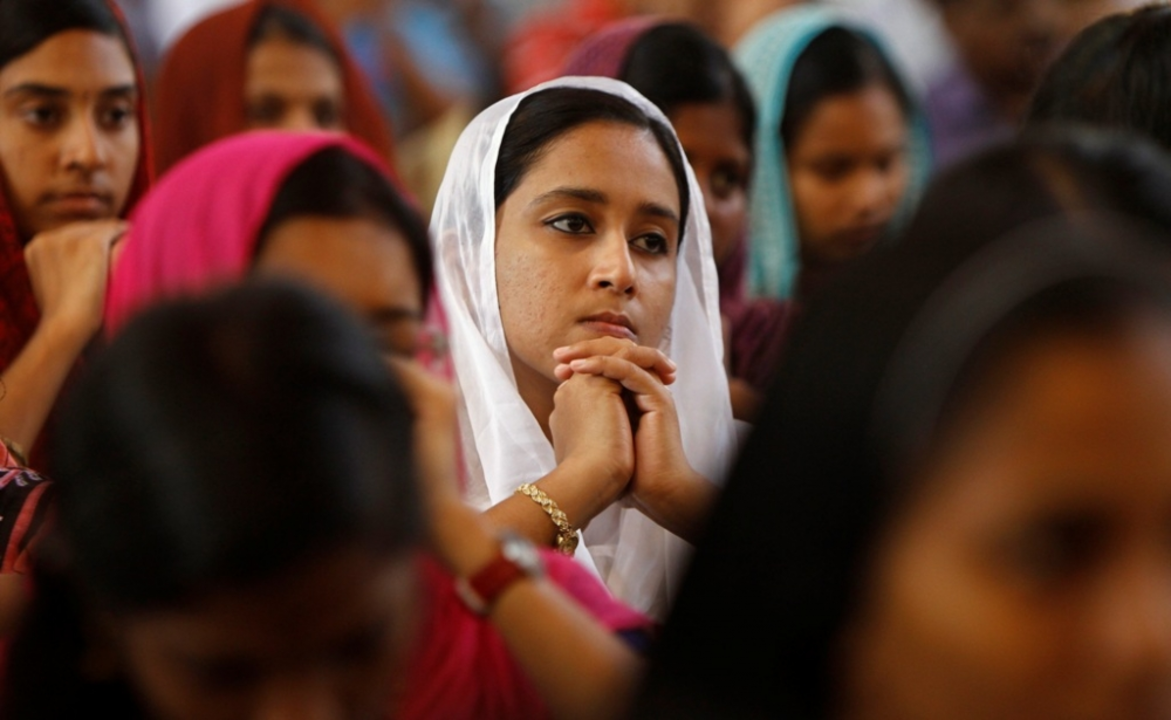Introduction: Indian Christians and Hindus
As a blogger, I have always been curious about the various perspectives and opinions of different communities. In India, we often witness the harmonious coexistence of diverse religious communities, and this has led me to explore the relationship between Indian Christians and Hindus. In this article, I will be sharing my research findings on what Indian Christians think about Hindus, by discussing various aspects of both religions and the interactions between the two communities.
Understanding the History and Influence of Christianity in India
Christianity is said to have arrived in India around 2000 years ago, with the arrival of St. Thomas the Apostle. Over the centuries, numerous Christian denominations have been established in the country, making Indian Christians a diverse group themselves. Although Christians comprise only about 2.3% of India's population, they have had a significant impact on the nation's history, culture, and traditions, often coexisting peacefully with their Hindu neighbors.
Appreciating the Richness of Hindu Culture
Many Indian Christians appreciate the richness of Hindu culture and its deep-rooted history. They acknowledge the contributions of Hinduism to Indian society, including its impact on art, architecture, music, dance, and cuisine. This appreciation extends to the various Hindu festivals celebrated across the country, with many Indian Christians partaking in the festivities alongside their Hindu friends and neighbors.
Respecting the Spirituality of Hinduism
Indian Christians often respect the spiritual aspect of Hinduism, recognizing the deep philosophical and spiritual teachings that the religion has to offer. They appreciate the emphasis on a spiritual journey towards self-realization and the concept of Dharma, which promotes righteous living and harmony in society. Despite the differences in beliefs and practices, many Indian Christians see the value in these teachings and respect the spiritual underpinnings of Hinduism.
Interfaith Dialogue and Understanding
Interfaith dialogues between Indian Christians and Hindus have been a significant part of their relationship for centuries. These conversations have helped both communities gain a better understanding of each other's beliefs, traditions, and practices. By engaging in open and respectful discussions, Indian Christians have been able to learn more about Hinduism while sharing their own faith and perspectives.
Embracing the Indian Identity
Indian Christians often see themselves as part of the larger Indian community, embracing their shared heritage and culture. This sense of belonging transcends religious differences and fosters a spirit of unity and camaraderie among both Christians and Hindus. Celebrating national holidays, participating in cultural events, and supporting local causes are just a few examples of how Indian Christians and Hindus come together to embrace their shared identity.
Understanding the Diversity of Hindu Beliefs and Practices
Indian Christians recognize that Hinduism is not a monolithic religion but rather a diverse collection of beliefs, practices, and traditions. This understanding has helped foster a sense of respect for the complexity and depth of Hinduism, as well as an appreciation for the religious freedom that allows both communities to practice their faiths without hindrance in India.
Challenges in Interfaith Relationships
While there is a great deal of harmony and understanding between Indian Christians and Hindus, there are also challenges that arise due to differences in religious beliefs and practices. Issues such as interfaith marriages, religious conversion, and differing viewpoints on social issues can sometimes create tension between the communities. However, many Indian Christians and Hindus continue to work together to address these challenges and maintain a spirit of unity and respect.
The Role of Education in Fostering Mutual Respect
Education plays a vital role in fostering mutual respect between Indian Christians and Hindus. By learning about each other's faiths, beliefs, and traditions, both communities can develop a deeper understanding and appreciation for one another. This is further facilitated by the presence of numerous Christian and Hindu educational institutions in India that often promote interfaith dialogue and understanding among their students.
Conclusion: Celebrating Unity in Diversity
In conclusion, Indian Christians and Hindus share a complex and multifaceted relationship, characterized by mutual respect, appreciation, and understanding. Despite the differences in beliefs and practices, both communities often come together to celebrate their shared Indian identity, heritage, and culture. By acknowledging and embracing this unity in diversity, Indian Christians and Hindus continue to contribute to the rich tapestry of India's religious and cultural landscape.

Write a comment